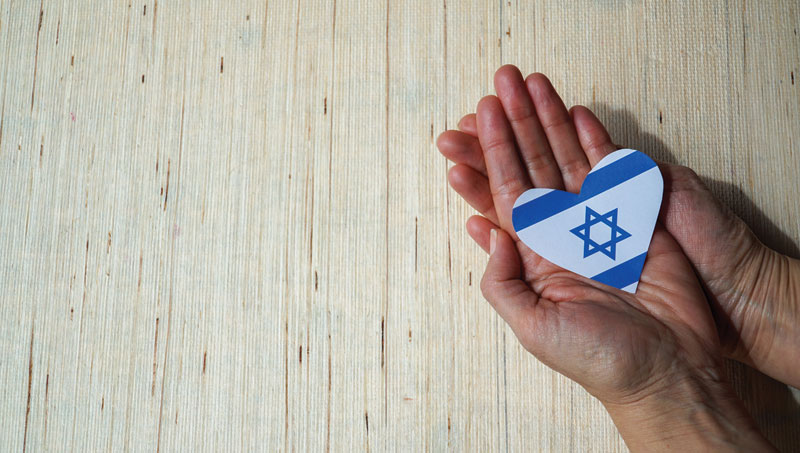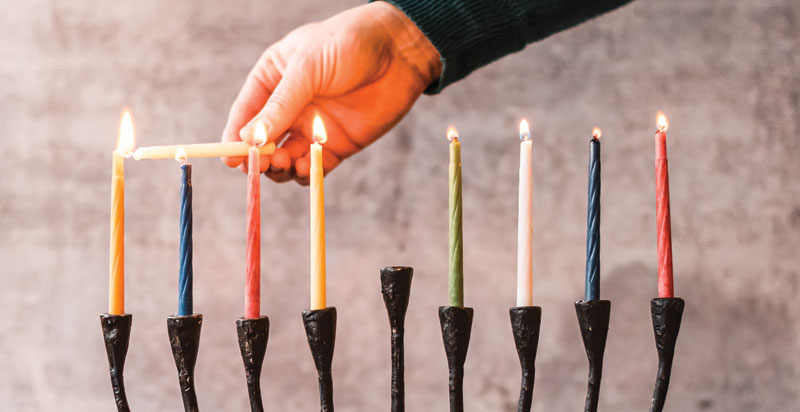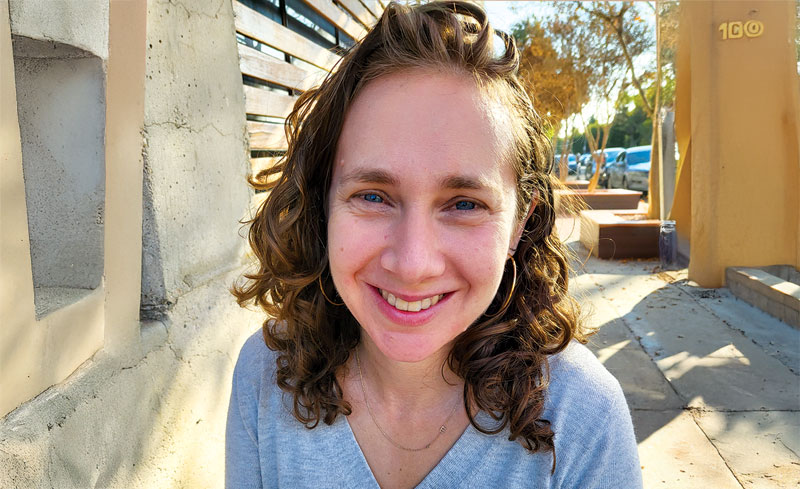Renewal and Restraint
By Edward Sanders
I went to Israel last month as someone who is a supporter of the peace process; as someone who believes in exchange of land for peace; as someone who is dedicated to peace with security for Israel; and as someone disturbed by the construction at Har Homa and the opening of the Hasmonean tunnel. Over the course of many years, I have supported Israel’s peace movement and have worked to promote a just peace between Israel and its Arab neighbors.
When Binyamin Netanyahu was elected by the Israeli people as their prime minister last May, I was disappointed. I did not think that he would, or could, effectively continue the peace process that was initiated by former Prime Ministers Yitzhak Rabin and Shimon Peres. I have been concerned about the proposed law of conversion, and now there is the additional problem of a politically wounded prime minister.
When I met with Prime Minister Netanyahu in his Jerusalem office last month, I related to him all of my concerns. Subsequently, after seeing the situation on the ground and being among the people of Israel, I found that my long-standing emotional commitment to Israel was reinvigorated, and I once again clearly understood the centrality of Jerusalem.
For Israel and the Jewish people, there has never been a capital other than Jerusalem over the course of the last 3,000 years. Jerusalem is mentioned 657 times in the Hebrew Bible (though not once in the Koran) and has been, and continues to be, the focus of Jewish prayer and thought. Although Jerusalem is revered by other faiths, its centrality to Judaism and to the Jewish people is unique. Even to secular Jews, Jerusalem has a mystical power that unites the Jewish people in Israel and the Diaspora.
In contrast to all of Jerusalem’s previous rulers (the Jordanians, the British and the Turks, in this century), Israel has maintained unprecedented safeguards for religious freedom within the city. Since Israel reunited the city in 1967, hundreds of thousands of Moslems and Christians — many from countries that remain in a state of war with Israel — have come to Jerusalem to visit their holy places.
When the city was last under Arab rule, from 1948 to 1967, non-Moslem holy places and observances were, at best, restricted and, at worst, desecrated. Christian schools were forced to include Moslem teachings, and the Christian population dropped by nearly 60 percent. Jewish synagogues and cemeteries (that were not outright destroyed) were converted into latrines and chicken coops, and access was denied to the Western Wall and all other Jewish sites.
These are the memories that Israel has of the last time Jerusalem was divided. Israeli negotiators bring this painful chapter of the city’s history with them during every negotiating session with their Palestinian partners. Israel ensures the religious and cultural rights of any and all who want to visit the Holy City. However, the issue of sovereignty is not open for debate.
While Israel has made certain commitments to the Palestinians through the accords that it has signed, none of these commitments has even mentioned Jerusalem. Israel does not have, and never had, any intention of dividing or sharing its eternal capital. For this reason, the status of the city was consciously omitted from all signed agreements. Any building that will take place in the Har Homa neighborhood of East Jerusalem, or anywhere else in the city, does not violate the accords.
When I visited Jerusalem, I saw a vibrant, growing city, whose residents, both Jewish and Arab, need additional housing. Israel’s plan to build for Jews in Har Homa and for Arabs in 10 Arab neighborhoods should be taken at face value. There is no reason an international crisis needs to erupt every time a Jerusalemite requires a bigger apartment. And such construction is certainly no justification for the terrorism that occurred when a Palestinian suicide bomber murdered three young women and injured scores of others at a Tel Aviv outdoor cafe. Israel cannot be expected to negotiate under the gun.
It is absolutely clear that the overwhelming majority of the Israeli people want peace with security, and no one with whom I talked can conceive of a divided Jerusalem.
I pray that the conflict between the Palestinians and the Israelis comes to a just and peaceful resolution. But the division of Jerusalem is something that the overwhelming majority of Israelis will never accept. On this issue, there is unity. For peace to succeed, a creative solution will need to be implemented that satisfies Palestinian needs while the city remains under Israel’s sovereignty.
I also came home with the firm conviction, now reinforced by the political turmoil in Israel, that this is neither the time nor the occasion for the American friends of Israel to urge the Clinton administration to do any more than energetically play its historic role as an honest broker. Any other course of conduct can backfire and further harm the already fragile course of peace. This is no time to pile on.
Edward Sanders is a former president of the Jewish Federation Council for Greater Los Angeles and former senior adviser to President Carter on the Middle East.
All rights reserved by author.






















 More news and opinions than at a Shabbat dinner, right in your inbox.
More news and opinions than at a Shabbat dinner, right in your inbox.